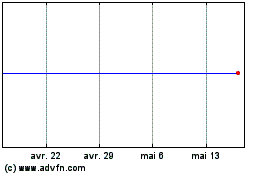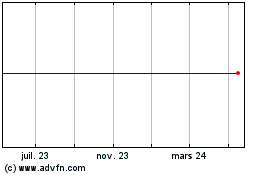ISTANBUL—Turkey's president blamed Islamic State for turning a
youth into a human bomb at a crowded outdoor wedding party in
southeast Turkey's largest city, killing at least 51 people in a
weekend attack that underscored how the war in neighboring Syria is
destabilizing the region.
The bombing in Gaziantep targeted a largely Kurdish neighborhood
and turned a celebratory summer evening into a scene of anguish and
mourning, as the couple recovered on Sunday from injuries sustained
in the massive Saturday blast and investigators worked to identify
the charred body parts of guests and family members.
Dozens of funerals took place on Sunday, including ceremonies
for 29 children who forensics teams had managed to identify. Nearly
100 people, including many women and children, were wounded in the
attack.
There was no immediate claim of responsibility, but President
Recep Tayyip Erdogan said a youth between the ages of 12 and 14
carried out the attack and said the bombing had the hallmarks of
Islamic State.
Turkey has been battling the terror group as part of the
international coalition, and has suffered multiple bombings
targeting Turkish citizens already this year, including a
devastating attack at Istanbul's Atatü rk International
Airport.
Turkey's Kurds in particular have come under fire from Islamic
State. Kurds in Syria and Iraq, who are ethnically related to their
kin in Turkey, have been among the most active groups fighting the
extremists. Previously, Islamic State bombed a Kurdish rally in the
Turkish capital and killed more than 100 people last year.
Earlier this month, a Syrian rebel offensive carried out largely
by Syrian Kurdish groups and backed by U.S. special operations
forces routed Islamic State positions in the Syrian city of Manbij,
cutting the terror group's last major road link to Turkey, which it
had used to shuttle foreign fighters and supplies to its so-called
caliphate. Turkey's prime minister said Saturday that his nation
was stepping up its role in finding a peace deal for Syria.
The attack on the wedding party came just before 11 p.m. on
Saturday. Besna and Nurettin Akdogan were presiding over
traditional henna ceremonies ahead of their formal wedding day.
Friends and relatives were outside to enjoy the festivities in the
neighborhood, home to many families who had fled violence between
the Kurdistan Workers' Party, or PKK, and government forces across
Turkey's southeast to the relative peace of Gaziantep.
Witnesses told Turkish television that guests had been dancing
and enjoying themselves when the explosion, which was loud enough
to be heard several neighborhoods away, tore into those
celebrating.
Those who survived, or who rushed to the scene to help the
injured, were overwhelmed with gruesome scenes. "We couldn't see
anything. Nothing but body parts," the groom's brother, Sukru
Akdogan, told the state-run Anadolu news agency.
Besna Akdoğan was discharged from the hospital on Sunday, but
needed assistance from her relatives to make it home. "They turned
our wedding into blood," she said, according to Anadolu.
Hospital workers had identified only 41 of those killed by
Sunday night, among them a three-month-old baby and a Syrian
boy.
It is unclear how the attacker penetrated the event. President
Erdogan also said it was unclear whether the suspected young bomber
triggered the explosives on his own, or whether they were detonated
remotely. The local prosecutor's office said it had recovered
fragments from a possible suicide vest, and in a statement said
that more information would be released about the identity of the
attacker in due time.
Since Turkey joined the coalition against Islamic State in
August 2015, the terror group has targeted its citizens in several
major attacks. The group has branded Turkey an infidel Muslim
nation and hostile regime.
Islamic State operatives have long used Gaziantep, which is
located only 70 miles from Aleppo, to hunt Syrian opposition
figures and journalists who fled the fighting in their homeland and
gained refugee status in Turkey.
In April, Islamic State claimed responsibility for an attack in
which one of its operatives shot a Syrian opposition journalist in
the head while he was walking in an outdoor market in the Turkish
city. Another Syrian journalist was assassinated there in
December.
These attacks on Kurds have soured the already checkered
relationship between Turkey's major opposition party, the People's
Democratic Party, or HDP, and the ruling Justice and Development
Party, or AKP.
The HDP, which represents a significant segment of the minority
Kurdish population, has accused the government of playing down the
threat from Islamic State to its constituents, who largely live in
the southeastern areas near the Syrian border where Islamic State
cells operate.
The government denies those allegations and says it is committed
to keeping all of is citizens safe from terror. During the first
five months of 2016, 989 individuals in Turkey were detained on
suspicion of having links to Islamic State, according to government
statistics. A total of 228 of those remain behind bars. The numbers
weren't broken down by national origin of the detainees.
Western allies also complain that Turkey isn't using its limited
security and intelligence resources in the most effective way to
battle Islamic State. Turkey says that it has three urgent
counterterrorism priorities: Islamic State, Kurdish militants, and
sympathizers with Fethullah Gulen, the U.S.-based Turkish religious
leader who the government accuses of masterminding July's failed
coup attempt. Mr. Gulen denies being behind the plot.
The wedding attack sparked an outpouring of sympathy in America
and Europe, where ties with Ankara have fallen to a recent low
after Turkish officials criticized what they call a lack of empathy
from Brussels over the failed coup.
The U.S., French and German governments, as well as the European
Union, all condemned the attack and sent condolences.
Russian President Vladimir Putin also expressed solidarity with
Mr. Erdogan, in a move likely to help consolidate improving ties
between Ankara and Moscow. Relations between the countries had been
strained since last November, when Turkish jet fighters downed a
Russian warplane last year near the border.
Valentina Pop in Brussels contributed to this article.
Write to Margaret Coker at margaret.coker@wsj.com and Thomas
Grove at thomas.grove@wsj.com
(END) Dow Jones Newswires
August 21, 2016 21:55 ET (01:55 GMT)
Copyright (c) 2016 Dow Jones & Company, Inc.
Twitter (NYSE:TWTR)
Graphique Historique de l'Action
De Juin 2024 à Juil 2024

Twitter (NYSE:TWTR)
Graphique Historique de l'Action
De Juil 2023 à Juil 2024
